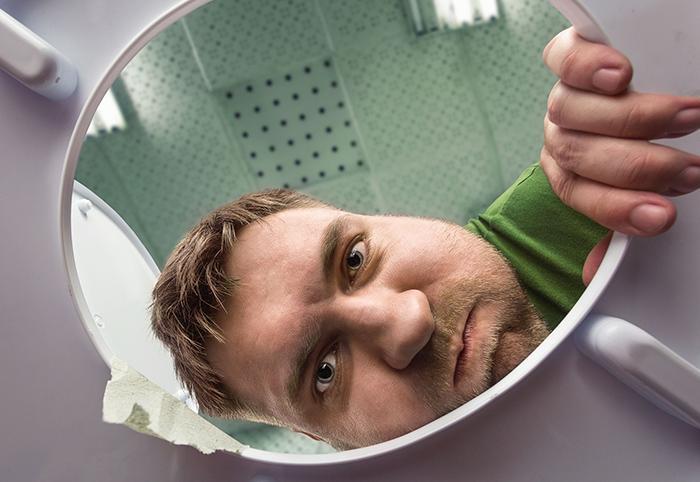Feeling sick after a round of drinks is something many of us have experienced. It’s alarming to know that alcohol, if consumed without caution, can lead to nausea and vomiting.
This blog aims to provide you with effective strategies on “How To Not Get Sick When Drinking,” ensuring that you enjoy your drinks responsibly and wake up feeling good the next day.
You Are Watching: How To Not Get Sick When Drinking Updated 07/2024
Ready for a healthier drinking experience? Keep reading!
How to Prevent Getting Sick when Drinking

Drink water before, during, and after alcohol consumption
- Drink a glass of water before starting your drinking session. This initial hydration can help balance out the dehydrating effects of alcohol.
- Consume a cup of water or non – alcoholic beverage between each alcoholic drink. This slows down your overall drinking speed and keeps you hydrated at the same time.
- Keep a bottle of water handy while drinking to sip on regularly, even if it’s just a few sips every half an hour.
- Rehydrate thoroughly after finishing your last alcoholic beverage for the night, ideally with electrolyte-filled drinks or plain water.
- Continue to drink more fluids than usual the next day, especially if you’re experiencing hangover symptoms like headache and nausea.
Limit the number of drinks consumed in an hour
This is because the body can only process a certain amount of alcohol at a time before it starts to have negative effects.
By pacing yourself and giving your body enough time to metabolize the alcohol, you can reduce the risk of feeling nauseous or vomiting.
It’s recommended to stick to no more than one standard drink per hour, which is equivalent to about 14 grams of pure alcohol.
Eat before and during drinking to settle the stomach
This can help settle your stomach and absorb some of the alcohol. Here are some tips:
- Have a balanced meal with protein, carbohydrates, and fats before you start drinking.
- Snack on small, light foods like crackers or pretzels while drinking to help maintain blood sugar levels.
- Avoid consuming greasy or spicy foods, as they can irritate the stomach and increase the chances of nausea.
- Opt for foods rich in fiber such as fruits and vegetables to promote digestion and prevent constipation.
Take antacids before starting to drink
Antacids work by neutralizing the acidity in your stomach, which can help reduce the chances of experiencing indigestion or an upset stomach after drinking.
By taking antacids beforehand, you can provide some protection against the potential discomfort caused by alcohol consumption.
Additionally, keep in mind that excessive alcohol intake can lead to various health issues and should be avoided for optimal wellness.
Consume ginger or elaichi to calm the stomach
Ginger and elaichi, also known as cardamom, can work wonders in calming your stomach when you’re drinking. These natural remedies have been used for centuries to ease digestive discomfort and prevent nausea.
Ginger helps relax the muscles of the gastrointestinal tract, while elaichi has soothing properties that can settle an upset stomach. Adding a slice of ginger to your drink or chewing on some elaichi pods can help alleviate any queasiness or unease caused by alcohol consumption.
By incorporating these simple ingredients into your drinking routine, you can enjoy a more pleasant experience without worrying about feeling sick later on.
Tips to Avoid Throwing Up after Drinking

Chew a spoonful of fennel seeds
To minimize the risk of throwing up after drinking, try chewing on a spoonful of fennel seeds (saunf). Fennel seeds have long been used as a natural remedy for digestive issues, including nausea and vomiting.
They contain compounds that help relax the muscles in your gastrointestinal tract, reducing feelings of queasiness. Additionally, fennel seeds can help freshen your breath and alleviate any unpleasant odors associated with alcohol consumption.
Simply pop a spoonful into your mouth and chew on them for some relief from alcohol-induced sickness.
Avoid mixing different types of alcoholic beverages
Mixing different types of alcoholic beverages can increase the likelihood of feeling sick and experiencing unpleasant side effects. When you mix different types of alcohol, such as beer, wine, and spirits, it can be harder for your body to process them all at once.
This can lead to a higher concentration of alcohol in your system and may result in nausea, vomiting, and hangover symptoms. To minimize these risks, it is best to stick with one type of alcohol throughout the night or choose drinks that have similar alcohol content.
By doing so, you can help protect your stomach and reduce the chances of getting sick while enjoying your favorite alcoholic beverages.
Have a banana for rehydration
To stay hydrated and prevent vomiting while drinking, having a banana can be surprisingly effective. Bananas are not only a great source of essential vitamins and minerals but also contain high levels of potassium, which is beneficial for rehydration.
When we consume alcohol, it can deplete our body’s electrolytes, leading to dehydration and potential nausea or vomiting.
By eating a banana before or during your drinking session, you can replenish these electrolytes while enjoying a tasty snack.
Avoid oily foods while drinking
Consuming oily foods while drinking can increase the likelihood of feeling sick afterwards. Oily foods take longer to digest, which can interfere with the body’s ability to process alcohol efficiently.
When you combine alcohol with greasy food, it can lead to indigestion and stomach discomfort. Additionally, fatty foods can trigger acid reflux, making you more prone to nausea and vomiting.
To prevent these unpleasant symptoms, it’s best to avoid or minimize your intake of oily foods when consuming alcohol. Opt for lighter options such as fruits, vegetables, lean proteins, or whole grains instead.
Opt for higher quality liquor
Lower quality liquors often contain more impurities and additives that can contribute to nausea and vomiting.
Read More : Does Coca Cola Make Your Period Come Updated 07/2024
Higher quality liquors are typically distilled more meticulously and undergo stricter regulations, resulting in a purer product.
By opting for higher quality liquor, you reduce the risk of consuming harmful substances that can negatively impact your stomach and overall well-being.
Techniques to Minimize Nausea and Vomiting

Make smaller drinks with more mixers
To minimize the risk of feeling sick after drinking, consider making smaller drinks with more mixers. By diluting your alcoholic beverage with non-alcoholic options like soda or juice, you can reduce the overall alcohol content and make it easier on your stomach.
This method helps to slow down the rate at which alcohol is absorbed in your body, giving it more time to metabolize and reducing the likelihood of nausea or vomiting. Additionally, mixing in a flavored or carbonated mixer can help mask the taste of alcohol and make it more enjoyable to drink.
Avoid excessive physical exertion
Excessive physical exertion while drinking alcohol can increase the likelihood of feeling sick and experiencing nausea or vomiting. When you engage in activities that require intense physical effort, your body is already working hard, and adding alcohol into the mix can put additional strain on your system.
This can lead to a higher risk of dehydration and an upset stomach.
It’s important to listen to your body and take breaks when needed during drinking sessions. Avoid participating in vigorous exercise or strenuous activities, as these can intensify the effects of alcohol and make you more susceptible to feeling ill.
By pacing yourself and allowing your body time to process the alcohol without added physical stress, you can help minimize the chances of experiencing unpleasant symptoms.
Don’t pair sugary drinks with alcohol
Pairing sugary drinks with alcohol can increase your risk of feeling sick and nauseous. When you consume sugary drinks like soda or cocktails loaded with sugar, it can lead to a spike in blood sugar levels and can cause an upset stomach.
This is because the combination of alcohol and sugar puts additional stress on your digestive system, making it harder for your body to process the alcohol properly. Instead, opt for lower sugar options like vodka soda or choose mixers that are low in added sugars.
By avoiding sugary drinks, you’ll reduce the likelihood of experiencing discomfort and minimize the chances of getting sick while drinking.
Take breaks and sit down periodically
- Resting and giving your body a break from standing or dancing can help prevent nausea and vomiting when drinking.
- Sitting down periodically allows your body to relax and helps reduce the chances of feeling sick.
- Take breaks every hour or so to rest and rejuvenate, especially if you’ve been engaging in excessive physical activity.
- Alternating between sitting and standing can also help regulate blood flow and prevent dizziness or lightheadedness.
- Remember to pace yourself and listen to your body’s signals of fatigue or discomfort.
- Taking regular breaks not only helps minimize the risk of getting sick but also allows you to enjoy the social aspects of drinking without overdoing it.
Drink from a straight-sided glass
When you drink from a glass with a wide opening, it allows the aroma of the alcohol to disperse more easily, which can trigger sensations of sickness.
Opting for a straight-sided glass reduces the intensity of these smells, making it easier on your stomach. So next time you’re enjoying a cocktail or a beer, choose a glass with straight sides to help prevent any unpleasant reactions.
Sources: https://chesbrewco.com
Category: Drink










